Havana, Cuba
Students explored 4 main themes: forming, transforming and using space; rhythms and textures of the city; trajectories of development; connections to the Caribbean and Latin America.
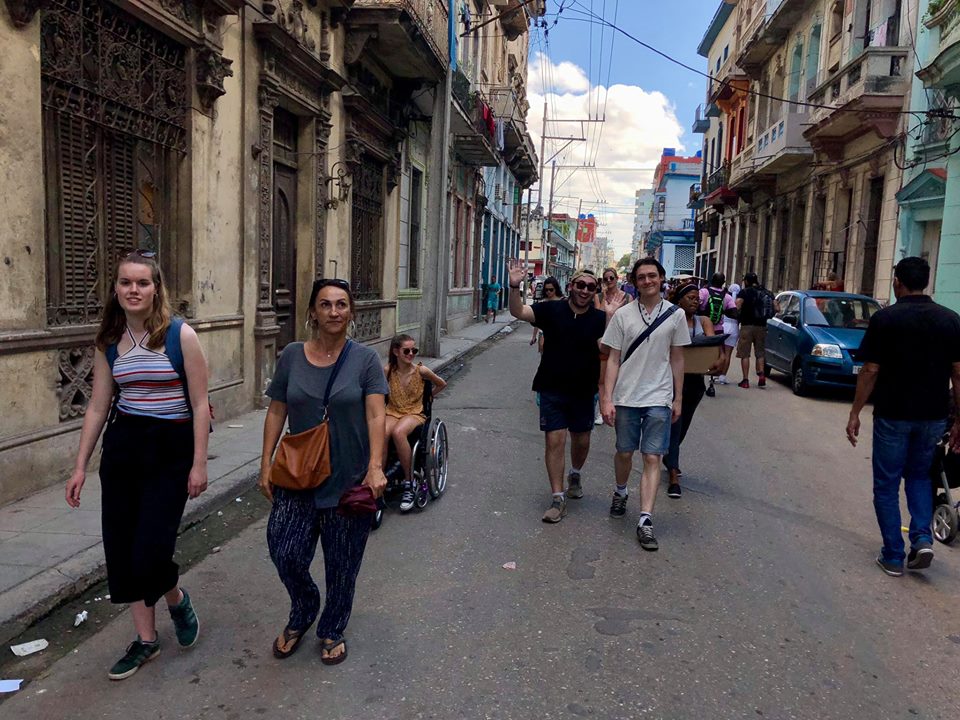 Havana field trip. Photo by Dr Ryan Centner.
Havana field trip. Photo by Dr Ryan Centner.
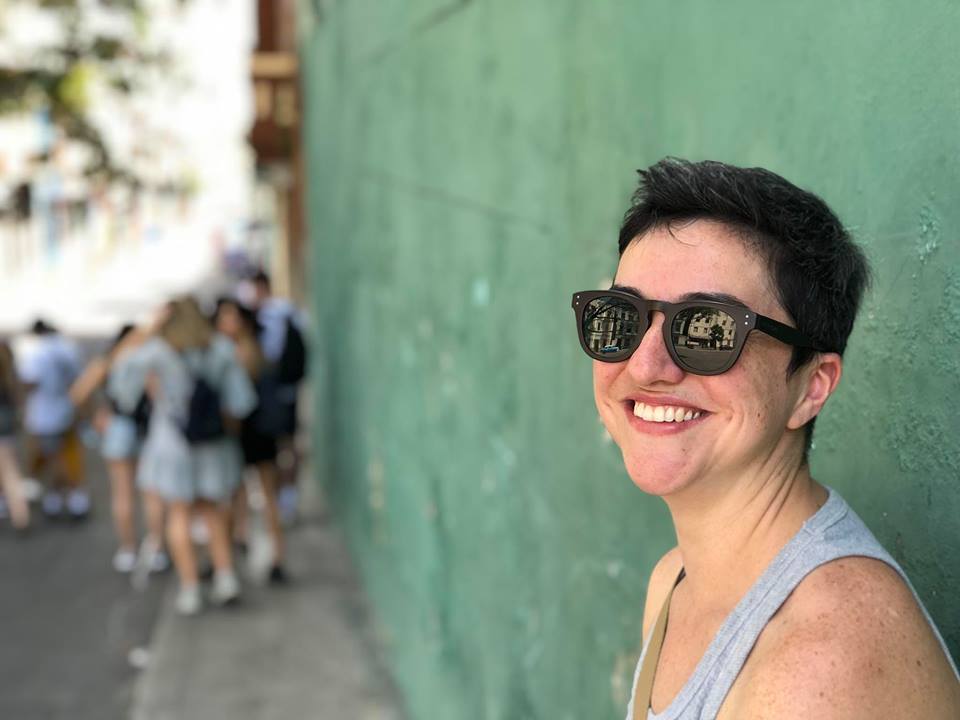 Havana field trip. Photo by Dr Ryan Centner.
Havana field trip. Photo by Dr Ryan Centner.
Portland, USA
This field trip visited one of the more peripheral among the larger cities of the United States: Portland, Oregon, in the region known as the Pacific Northwest, or ‘Cascadia’.
Students practiced their qualitative methods through group projects rooted in a range of local organisations, agencies, and districts. Immersion in local conditions, including food, transport, music, and culture, gave an insight into Portland as a case to be understood geographically in relation to other places and conditions in the world.
Discover students' and staff's reflections on the 2024 Portland field trip in Transformations in Portland & Cascadia: Geographic Reflections.
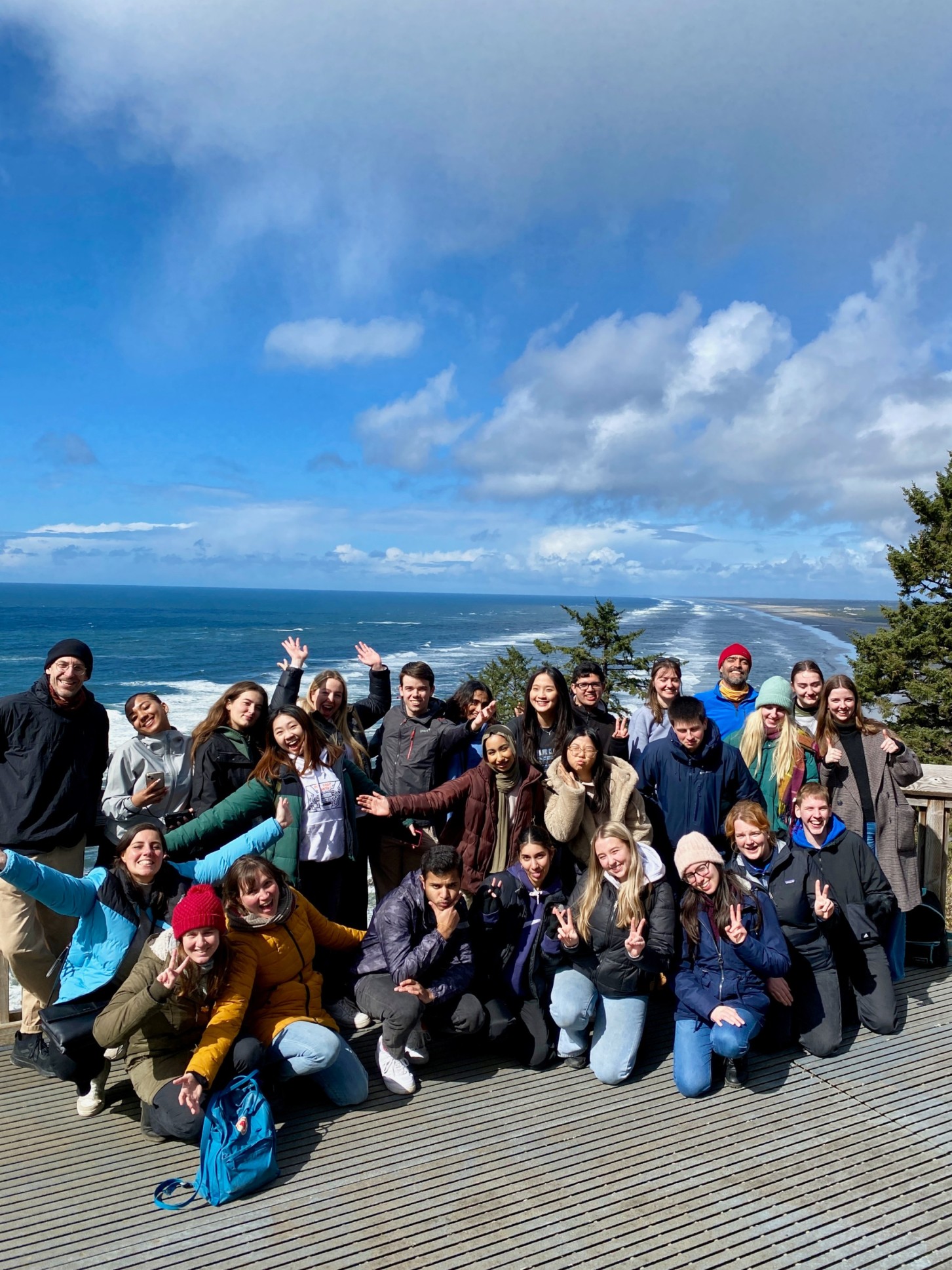
How did the trip contribute to your real world understanding of Human Geography?
I had been to the US before but not to Portland or the West Coast. Portland has a unique identity and is a very welcoming city but also has its problems. We got to meet some of the community organisations and individuals trying to help with issues like houselessness so we saw a side of the city that a tourist wouldn't necessarily see. I think you can get a much better sense of what a city like Portland is like for the people who live there by visiting and spending time there.
What specific locations or landmarks did you visit?
We packed a lot into a one-week trip: we went to the coast, the forest park, the Nike headquarters and lots of interesting parts of the city including Ryan Centner's old high school. In our time off we visited Powell's, the world's largest independent bookstore, and we found lots of great places to eat and go out. We even spent a bit of time in Seattle.
What was the highlight?
Planting ferns in the forest park - a little bit of rainforest.
3 words to describe the trip?
Keep Portland Weird!
Camilla Royle, LSE Fellow in Geography and Environment
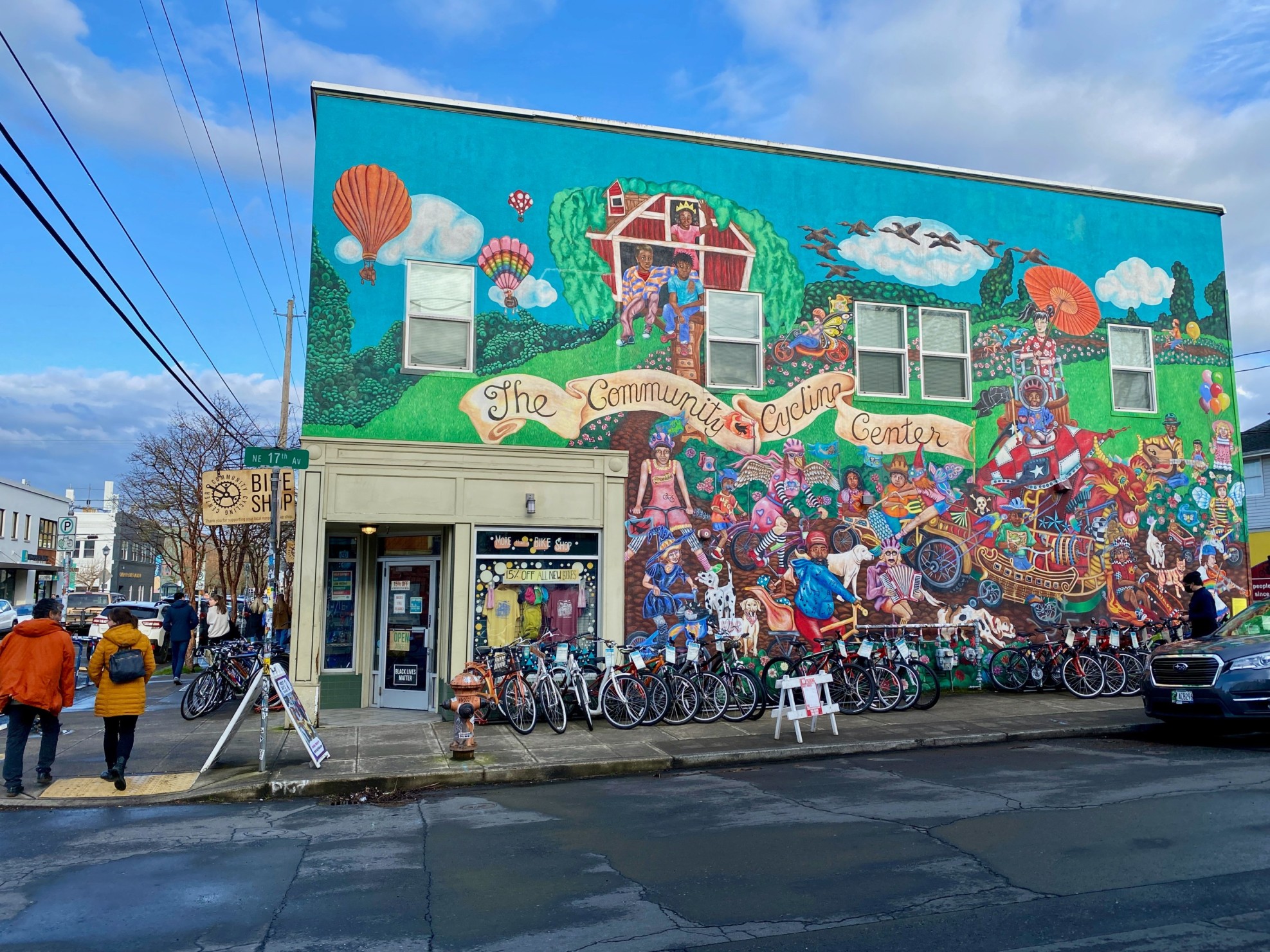 Oregon field trip. Photo by Dr Ryan Centner.
Oregon field trip. Photo by Dr Ryan Centner.
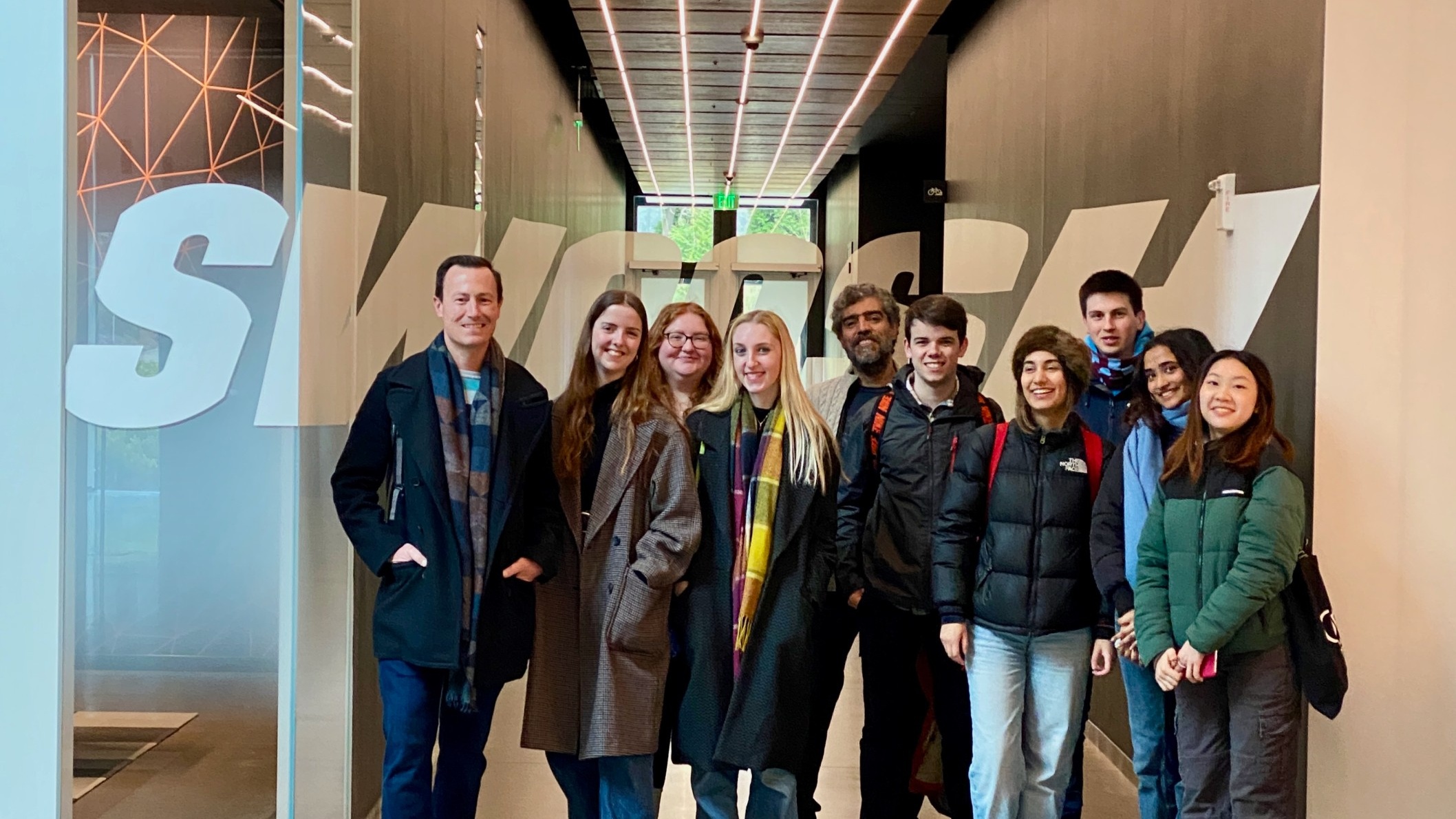 Oregon field trip. Photo by Dr Ryan Centner
Oregon field trip. Photo by Dr Ryan Centner
L'Aquila, Italy
This field trip visited L’Aquila in the Abruzzo Region of Italy. L’Aquila provides a rich and important case for studying the economic regeneration of a region that has suffered severe disruption due to a devastating “external shock”. On 6 April 2009, a 5.9 magnitude earthquake struck the Abruzzo region of Italy.
During the field trip students saw signs of the 2009 earthquake that have remained etched into the city. They experienced L’Aquila’s precious cultural and architectonical inheritance, the efforts it has made to make the most of its IT and R&D potential for innovation.
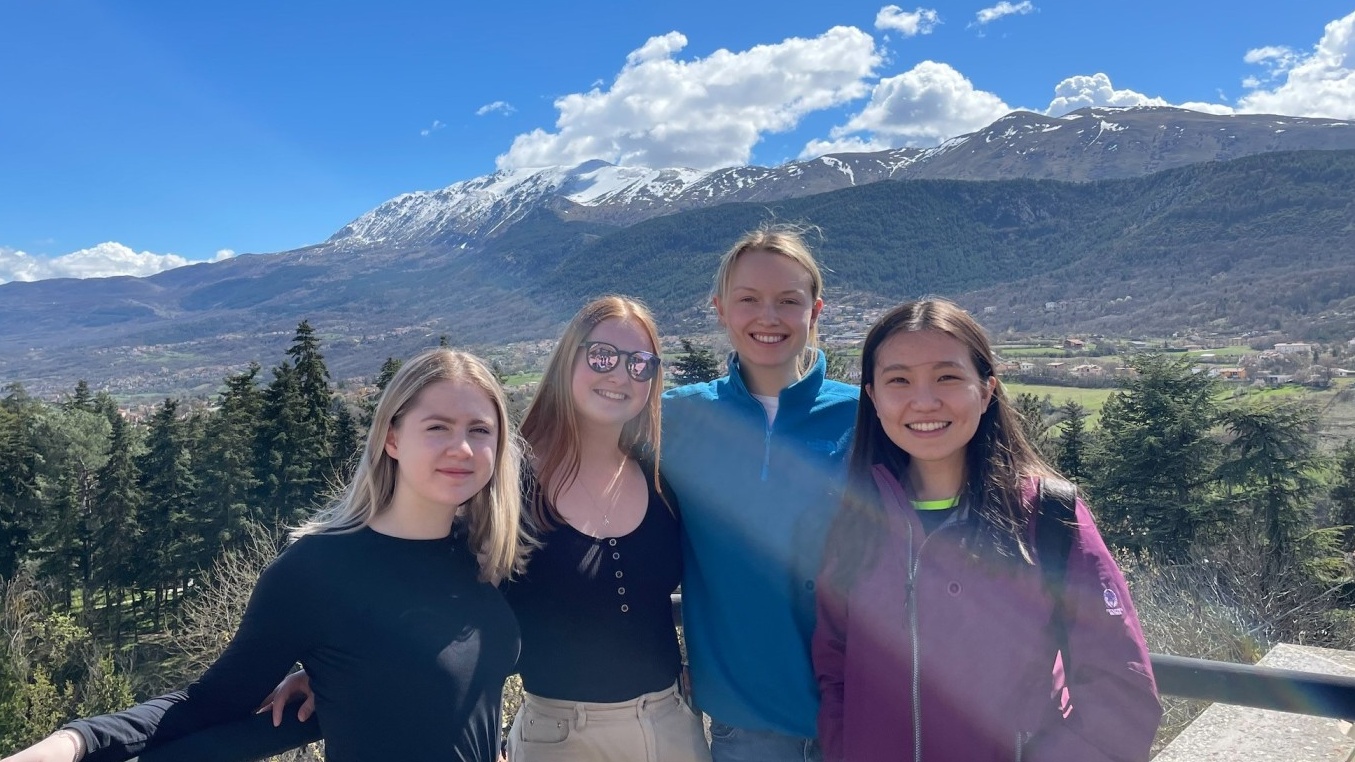 L'Aquila field trip. Photo by Saoirse Jackson.
L'Aquila field trip. Photo by Saoirse Jackson.
Kerala, India
Students visited the state of Kerala in south India, based in the area around Kochi (formerly Cohin). Kerala provides a rich and fascinating introduction to South Asian landscapes and culture, both new and old. It is often described as a success story of economic development – the so called ‘Kerala model’ - with high levels of literacy and life expectancy, despite its relatively low per capita income.
How did the trip contribute to your real world understanding of Economic Geography?
My previous experience in India, and Kerala in particular, was greatly enriched by the contacts and exchanges with entrepreneurs and local economic actors, confirming the importance of context specificity and bottom-up approaches in regional economic development.
What was your favourite visit during the trip?
I was particularly impressed by the visit to the village Council (Panchayat) in the Backwaters, and the women empowerment projects
What did you find most inspiring?
All the people we met were truly inspiring for different reasons: I learnt a lot also from our local fieldtrip guide, Dax Gueizelar: his knowledge and passion about his region was truly inspiring!
3 words to describe the trip?
Stunning, enlightening, inspirational
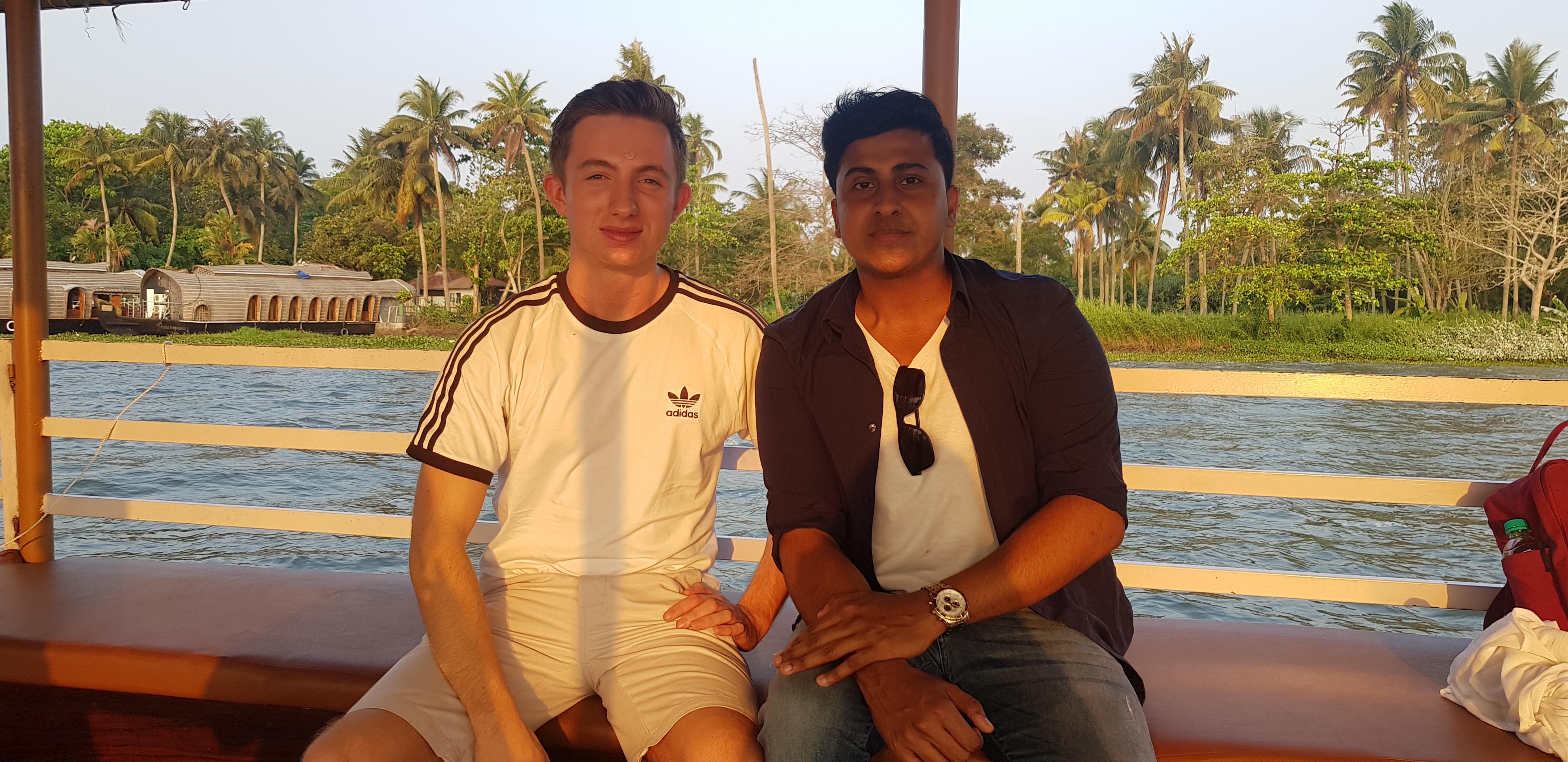 How did the trip contribute to your real world understanding of Economic Geography?
How did the trip contribute to your real world understanding of Economic Geography?
This trip was a great opportunity to see my knowledge and understanding from lectures and classes at LSE being applied to real-life scenarios. For example, seeing the real life effects of knowledge spill-overs happening across the IT industry in Kerala was truly amazing. Furthermore, I loved learning about the role of policies on creating economic development at different stages in Kerala, from local fishermen to multi-million dollar businesses. I really enjoyed having the opportunity to speak to the locals directly and hear their stories.
What was your favourite visit during the trip?
My favourite visit was to the V-Guard Headquarters, where we met the founder and CEO, Kochouseph Chittilappilly. It was a brilliant opportunity to directly speak to one of India’s most successful entrepreneurs. He has been given many awards throughout the years as well as being named one of "India’s Highest Tax Payers”.
What did you find most inspiring?
Kerala’s policies for women empowerment have been the most inspiring to me. Their main aim is to break down social barriers in society by providing the local women with a “voice” and a platform to take action. From going to work to starting their own businesses. The results have been incredible so far. It was great visiting a house which was built by the local women in just 52 days.
3 words to describe the trip?
Inspiring, eye-opening, breath-taking.
Watch Altab's Kerala video here.
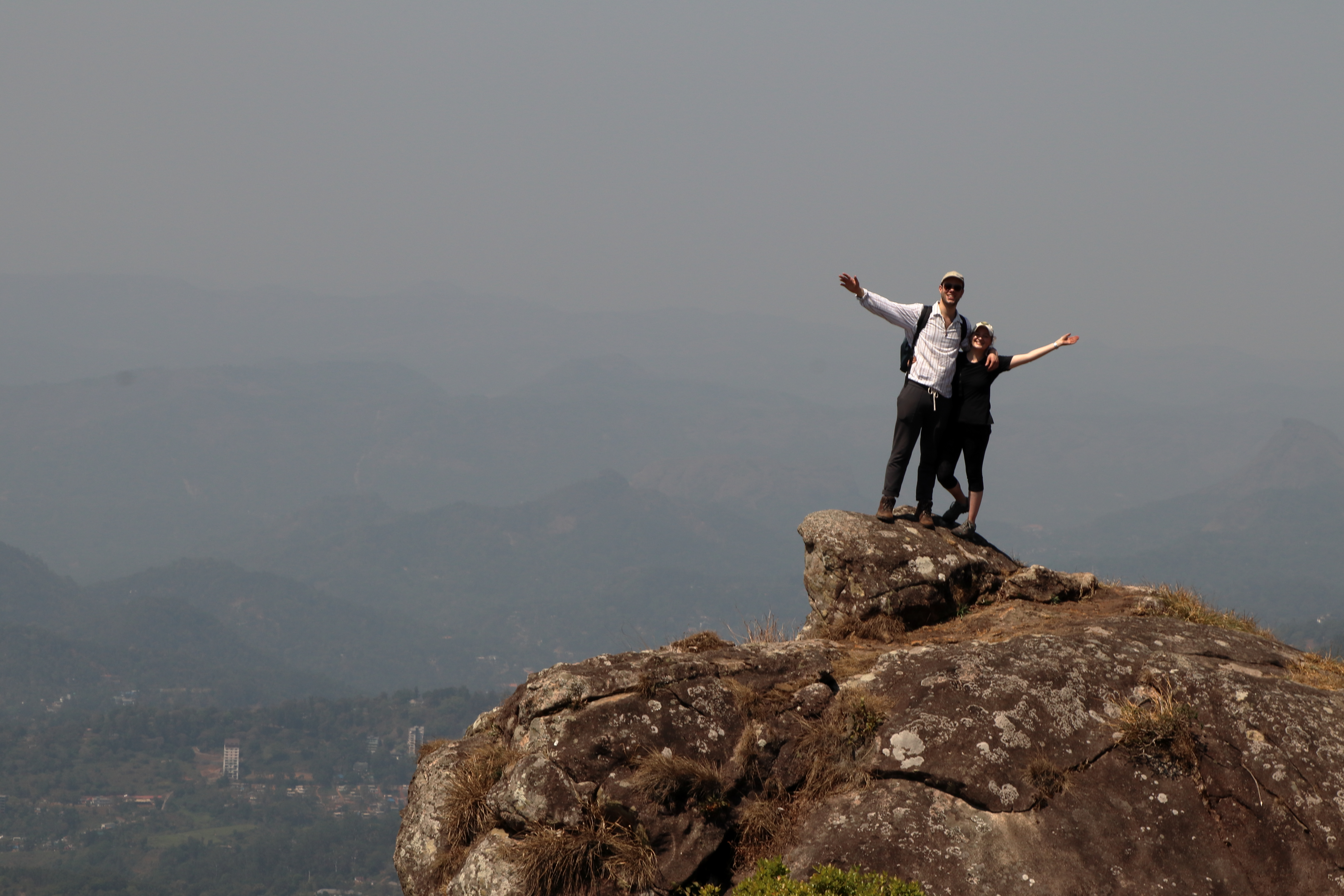 Kerala field trip. Photo by Dr Thomas Smith.
Kerala field trip. Photo by Dr Thomas Smith.
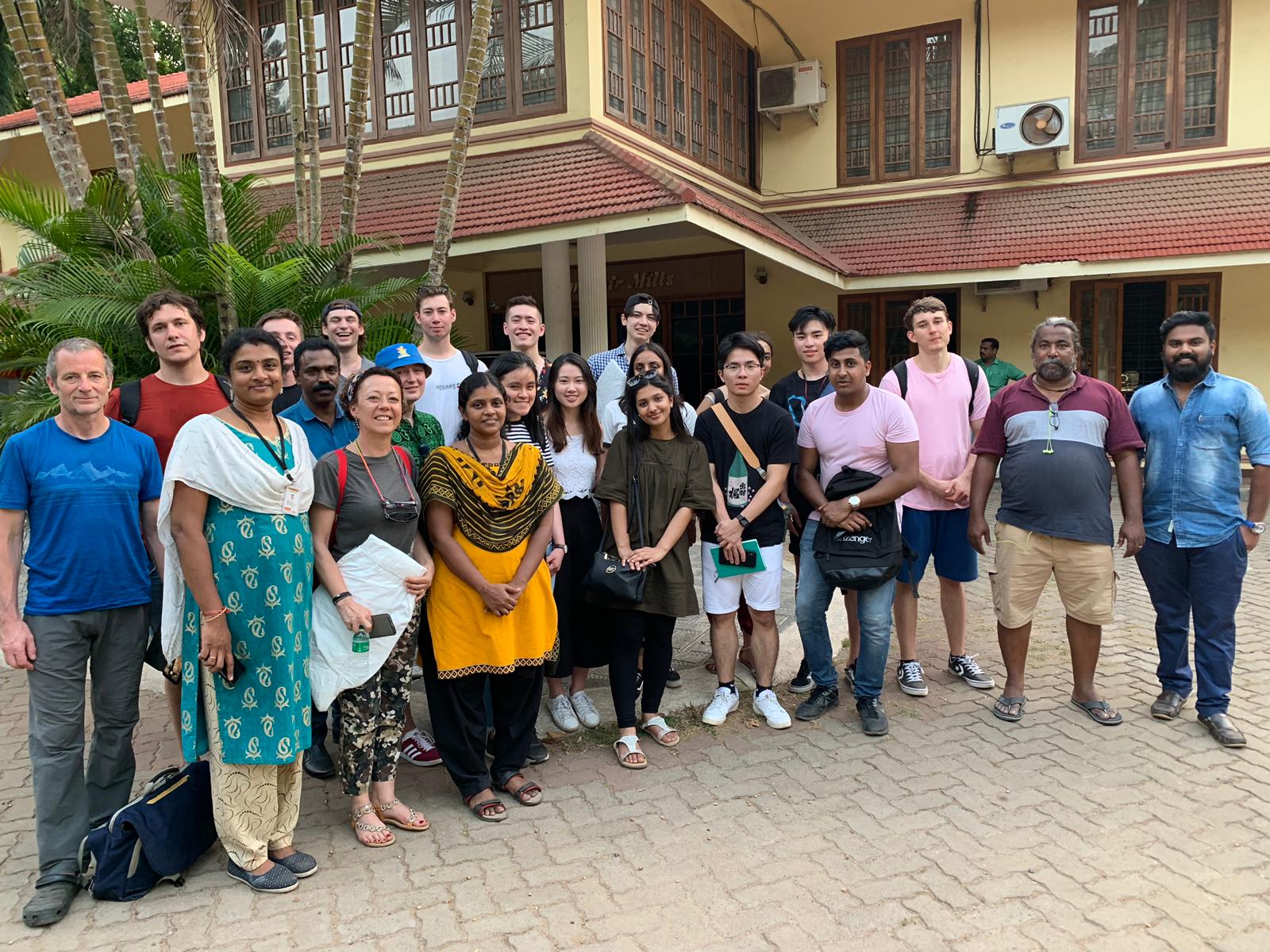 Kerala field trip. Photo by Prof Simona Iammarino.
Kerala field trip. Photo by Prof Simona Iammarino.
Juniper Hall, UK
Our first year undergraduates experience their first field trip with a fascinating exploration of Juniper Hall in Dorking, Surrey.
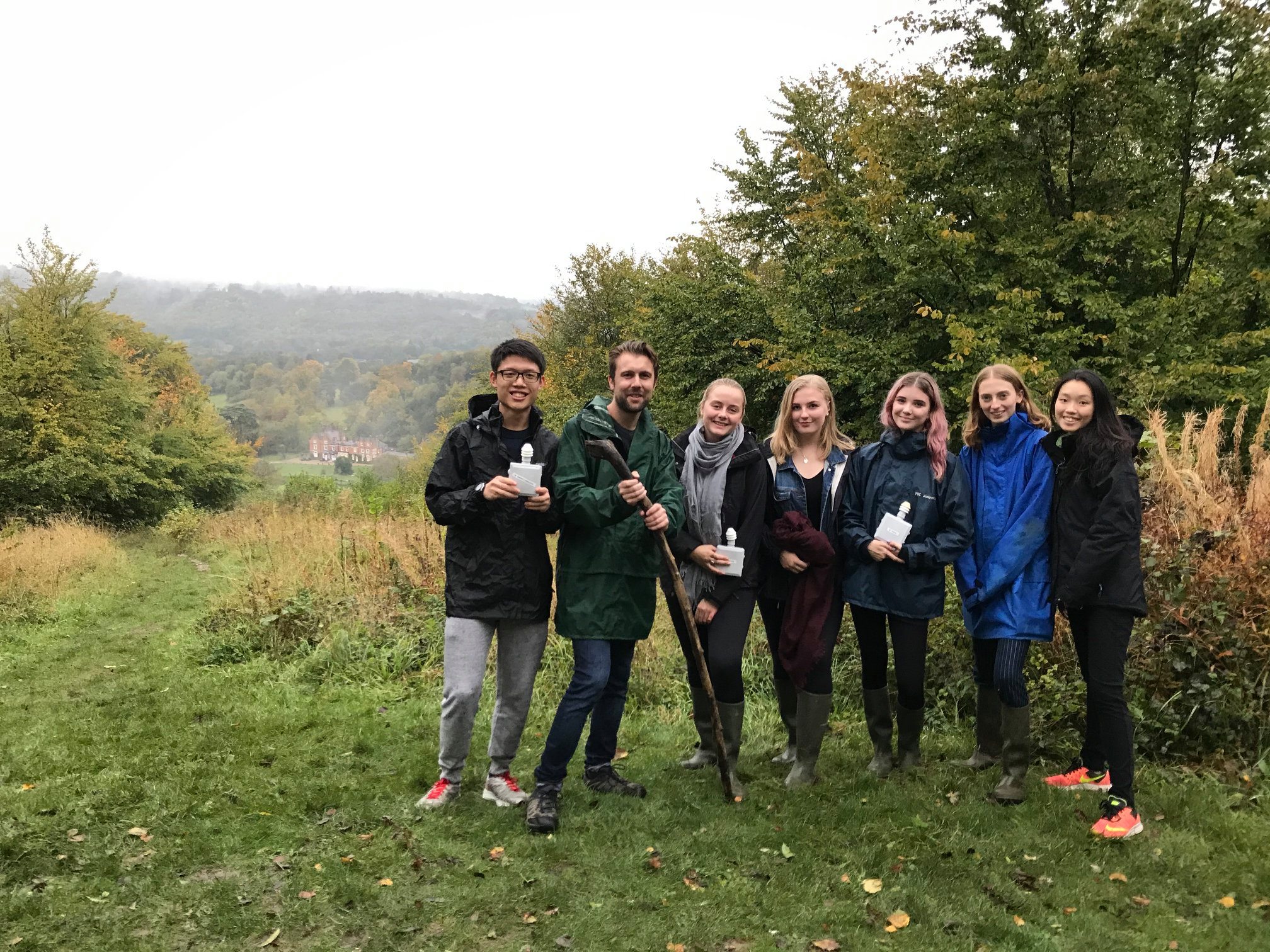 Dr Thomas Smith and first year students at Juniper Hall.
Dr Thomas Smith and first year students at Juniper Hall.
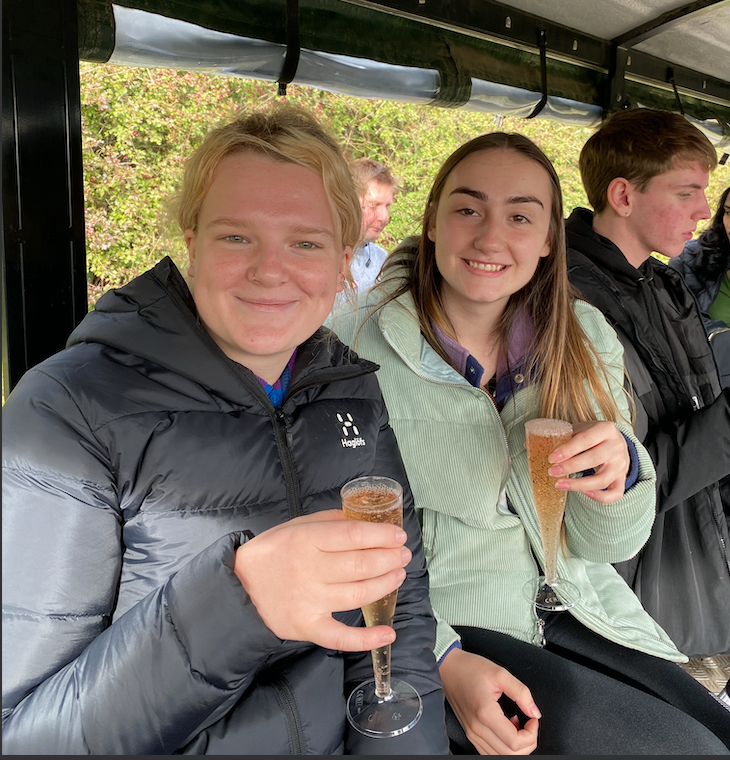
Which activity did you enjoy most on the trip?
Most of all I enjoyed the downtime at Juniper Hall, it was so nice to get to know everyone in a more relaxed environment than on campus. I particularly appreciated the evening activities such as the quiz and the campfire. We all got involved in lighting the campfire, roasting marshmallows, and singing. It was lovely to have everyone from the department together in one place; that was an unforgettable moment. It was also reassuring to meet our academics off-campus and realise they were also very down-to-earth people, which has made it less-dauting to access help from the department during term-time.
How was it meeting your whole year cohort for the first time?
Having all the Geographers together at once made it so easy to get to know the people I’m going to be spending the next three years with. While we’d all had opportunities to meet each other before, on campus or through other Geography department events, Juniper Hall allowed us to really cement those friendships. It’s made a huge difference now knowing my cohort on a more personal level and being able to say ‘Hello’ to them on campus; that’s definitely helped me settle into first year university life.
3 words to describe the trip?
Fun, reassuring, unforgettable.
Can you tell us about the Economic Geography activity you led?
The activity involved a guided walk to the top of Box Hill followed by a guided tour of Denbies Vineyard. The purpose was to interrogate two important prospects for comparative advantage in the Mole Valley region. Both parts offered important insights into the economic geographies of the Valley region, and both were a lot of fun. The students loved it!
What do you think of the area of Surrey Hills AONB, where Juniper Hall is based?
Both Box Hill and Denbies Vineyard are situated in an area of outstanding natural beauty. The views are stunning; and it is fantastic to see Juniper Hall nestling into the landscape as you climb Box Hill. It's truly beautiful. I would happily live there!
3 words to describe the trip?
Worth - Every - Second!
Master's field trips
L'Aquila, Italy
Our MSc Local Economic Development students visited L'Aquila, Italy, which was heavily damaged by a 6.3 magnitude earthquake that struck the city on 6 April 2009. The field trip focused on the mammoth reconstruction efforts since the disaster, including the complexities in the structures and governance that oversee this process. Learn more about the trip.
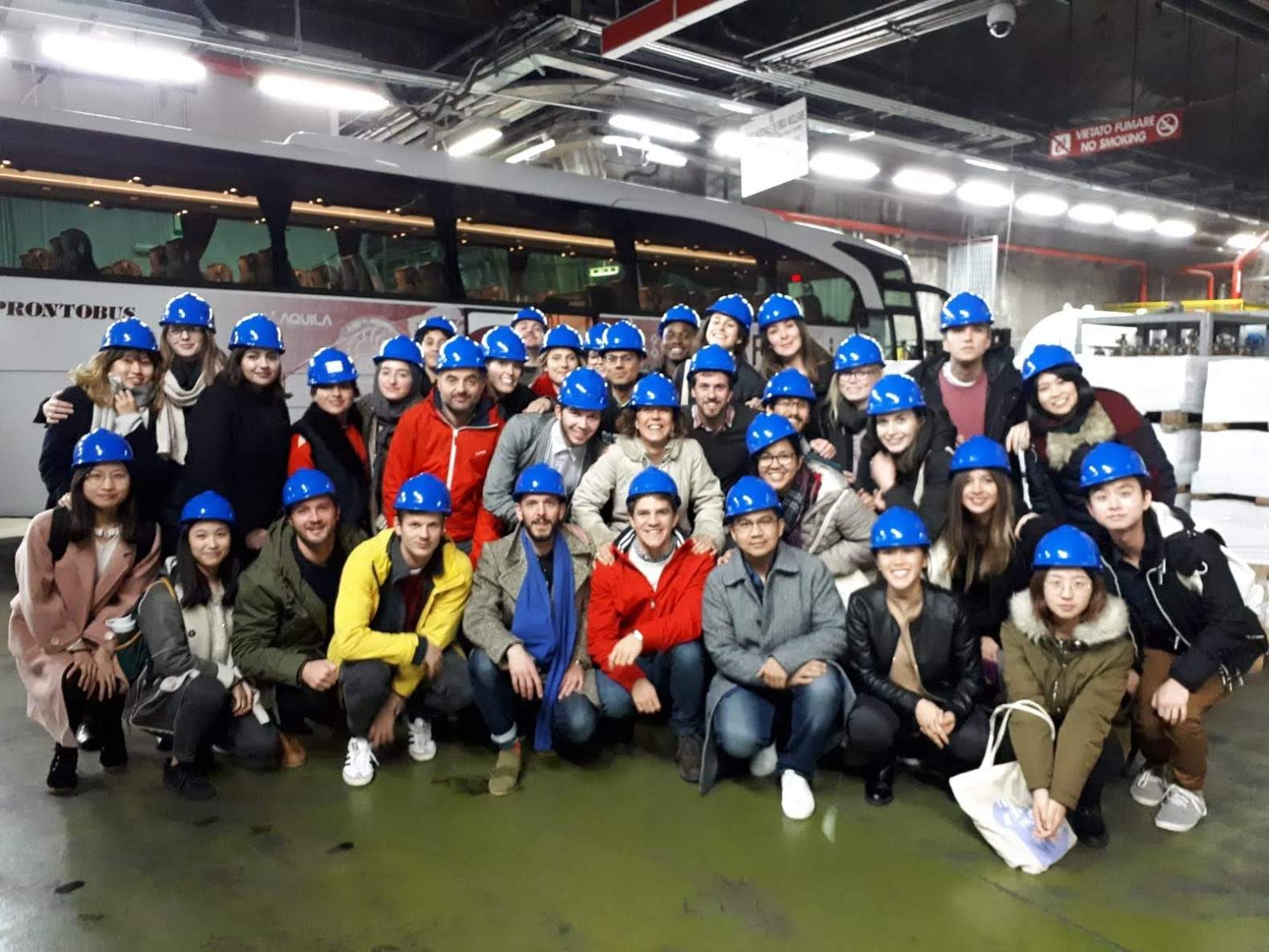 L'Aquila field trip
Learn more about the L’Aquila field trip and hear from our students and field trip organiser, Professor Simona Iammarino.
L'Aquila field trip
Learn more about the L’Aquila field trip and hear from our students and field trip organiser, Professor Simona Iammarino.